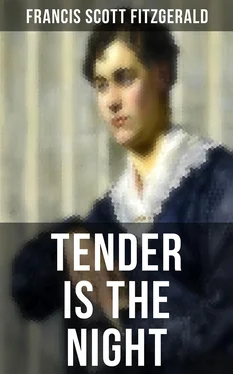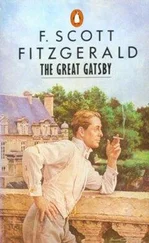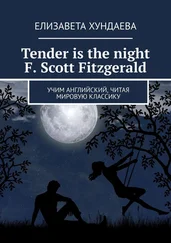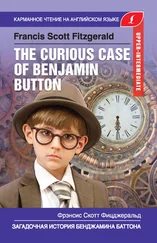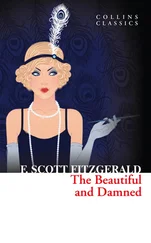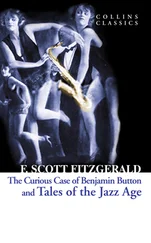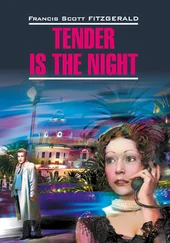Though we had lived in the East since I had been a baby, it was always understood that home meant the prosperous Western city that still supported the roots of our family tree. When I was twenty I went back for the first time and made my only acquaintance with United George.
I had dinner in the apartment with my aunt, a very brave, gentle old lady who told me, rather proudly, I thought, that I looked like George. I was shown his pictures from babyhood, in every attitude; George at Andover, on the Y. M. C. A. committee, strange anatomy; George at Williams in the center of the Literary Magazine Picture, George as head of his fraternity. Then she handed me a scrap-book containing accounts of his exploits and all criticism of his work.
“He cares nothing at all about all this,” she explained. I admired and questioned, and remember thinking as I left the apartment to seek Uncle George at his club, that between my family’s depressed opinion of him and my aunts elated one my idea of him was muddled to say the least. At the Iroquois Club I was directed to the grill, and there standing in the doorway, I picked one out of the crowd, who, I was immediately sure, was he. Here is the way he looked at the time. He was tall with magnificent iron grey hair and the pale soft skin of a boy, most remarkable in a man of his mode of life. Drooping green eyes and a sneering mouth complete my picture of his physical self. He was rather drunk, for he had been at the Club all afternoon and for dinner, but he was perfectly conscious of himself and the dulling of faculties was only perceivable in a very cautious walk and a crack in his voice that sank it occasionally to a hoarse whisper. He was talking to a table of men all in various stages of inebriation, and holding them by a most peculiar and magnetic series of gestures. Right here I want to remark that this influence was not dependent so much upon a vivid physical personality but on a series of perfectly artificial mental tricks, his gestures, the peculiar range of his speaking voice, the suddenness and terseness of his remarks.
I watched him intently while my hall boy whispered to him and he walked slowly and consciously over to me to shake hands gravely and escort me to a small table. For an hour we talked of family things, of healths and deaths and births. I could not take my eyes off him. The blood-shot streakedness of his green eyes made me think of wierd color combinations in a child’s paintbox. He had been looking bored for about ten minutes and my talk had been dwindling despondently down when suddenly he waved his hand as if to brush away a veil, and began to question me.
“Is that damn father of yours still defending me against your mother’s tongue?”
I started, but strangely, felt no resentment.
“Because,” he went on, “It’s the only thing he ever did for me all his life. He’s a terrible prig. I’d think it would drive you wild to have him in the house.”
“Father feels very kindly toward you, sir,” I said rather stiffly.
“Don’t,” he protested smiling. “Stick to veracity in your own family and don’t bother to lie to me. I’m a totally black figure in your mind, I’m well aware. Am I not?”
“Well—you’ve—you’ve had a twenty years’ history.”
“Twenty years—hell—” said Uncle George. “Three years history and fifteen years aftermath.”
“But your books—and all.”
“Just aftermath, nothing but aftermath, my life stopped at twenty-one one night in October at sixteen minutes after ten. Do you want to hear about it? First I’ll show you the heifer and then I’ll take you upstairs and present you to the altar.”
“I, you—if you—” I demurred feebly, for I was on fire to hear the story.
“Oh,—no trouble. I’ve done the story several times in books and life and around many a litered table. I have no delicacy any more—I lost that in the first smoke. This is the totally blackened heifer whom you’re talking to now.”
So he told me the story.
“You see it began Sophmore year—began most directly and most vividly in Christmas vacation of Sophmore year. Before that she’d always gone with a younger crowd—set, you young people call it now,” he paused and clutched with mental fingers for tangible figures to express himself. “Her dancing, I guess, and beauty and the most direct, unprincipled personality I’ve ever come in contact with. When she wanted a boy there was no preliminary scouting among other girls for information, no sending out of tentative approaches meant to be retailed to him. There was the most direct attack by every faculty and gift that she possessed. She had no divergence of method—she just made you conscious to the highest degree that she was a girl”—he turned his eyes on me suddenly and asked:
“Is that enough—do you want a description of her eyes and hair and what she said?”
“No,” I answered, “go on.”
“Well, I went back to college an idealist, I built up a system of psychology in which dark ladies with alto voices and infinite possibilities floated through my days and nights. Of course we had the most frantic correspondence—each wrote ridiculous letters and sent ridiculous telegrams, told all our acquaintances about our flaming affair and—well, you’ve been to college. All this is banal, I know. Here’s an odd thing. All the time I was idealizing her to the last possibility, I was perfectly conscious that she was about the faultiest girl I’d ever met. She was selfish, conceited and uncontrolled and since these were my own faults I was doubly aware of them. Yet I never wanted to change her. Each fault was knit up with a sort of passionate energy that transcended it. Her selfishness made her play the game harder, her lack of control put me rather in awe of her and her conceit was punctuated by such delicious moments of remorse and self-denunciation that it was almost—almost dear to me—Isn’t this getting ridiculous? She had the strongest effect on me. She made me want to do something for her, to get something to show her. Every honor in college took on the semblance of a presentable trophy.”
He beckoned to a waiter to my infinite misgiving, for though he seemed rather more sober than when I had arrived, he had been drinking steadily and I knew my own position would be embarrasing if he became altogether drunk.
“Then”—between sips—“we saw each other at sporadic intervals, quarreled, kissed and quarreled again. We were equals, neither was the leader. She was as interested in me as I was fascinated by her. We were both terrifically jealous but there was little occasion to show it. Each of us had small affairs on the side but merely as relaxations when the other was away. I didn’t realize it but my idealism was slowly waning—or increasing into love—and rather a gentle sort of love.” His face tightened. “This isn’t cup sentiment.” I nodded and he went on; “Well, we broke off in two hours and I was the weak one.”
“Senior year I went to her school dance in New York, and there was a man there from another college of whom I became very jealous and not without cause. She and I had a few words about it and half an hour later I walked out on the street in my coat and hat, leaving behind the melancholy statement that I was through for good. So far so good. If I’d gone back to college that night or if I’d gone and gotten drunk or done almost anything wild or resentful the break would never have occurred—she’d have written next day. Here’s what did happen. I walked along Fifth Avenue letting my imagination play on my sorrow, really luxuriating in it. She’d never looked better than she had that night, never; and I had never been so much in love. I worked myself up to the highest pitch of emotional imagination and moods grow real on me and then—Oh poor damn fool that I was—am—will always be—I went back. Went back! Couldn’t I have known or seen—I knew her and myself—I could have plotted out for anyone else or in a cool mood, for myself, just what I should have done, but my imagination made me go back, drove me. Half a thought in my brain would have sent me to Williamstown or the Manhattan bar. Another half thought sent me back to her school. When I crossed the threshold it was sixteen minutes after ten. At that minute I stopped living.”
Читать дальше
